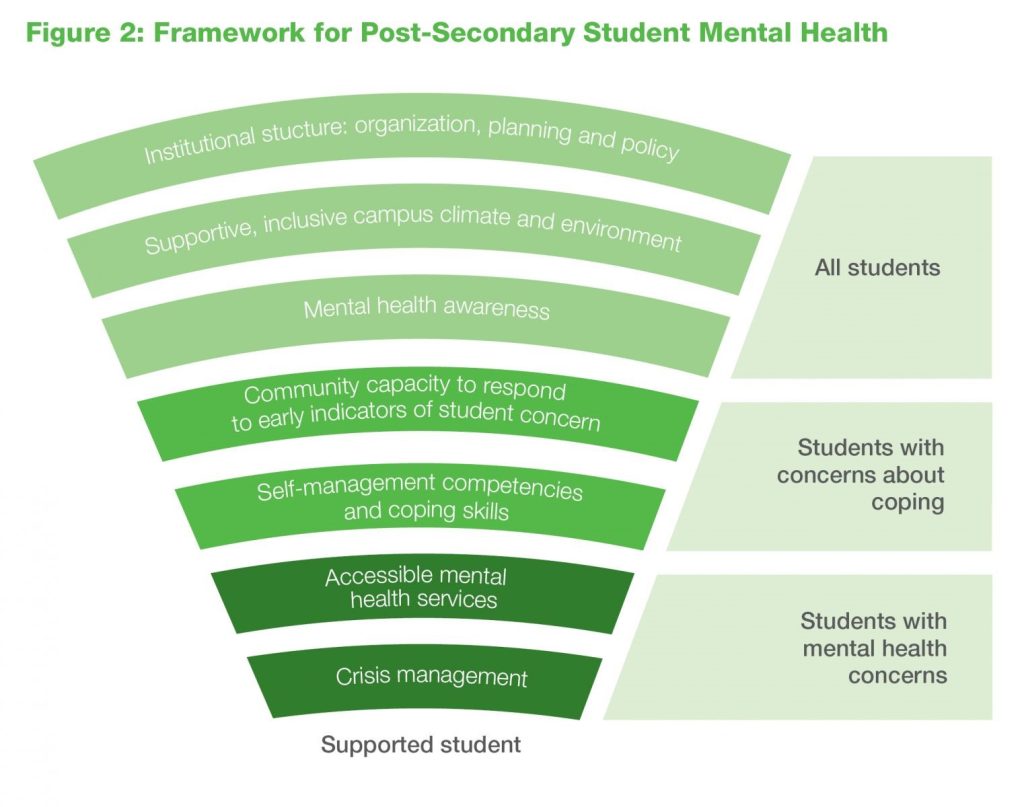Mental Health, Wellbeing and Resilience

“What mental health needs is more sunlight, more candor, and more unashamed conversation.” – Glenn Close
Based on Aristotle’s view, health is about attaining a state of wellbeing. Wellbeing is a capacity interconnected with other capacities (such as wisdom, patience, or willingness to be self-critical)—something we cultivate as a balanced whole. Wellbeing needs to be nurtured through experience, opportunities and social supports within the contexts in which we live our lives. It is a deeply personal journey that requires our ongoing reflection and adjustments along the way. It is also a social journey in which we are constantly interacting with things and other people and being shaped by those interactions. Aristotle’s notion of wellbeing (in contrast to biological health) portrays wellbeing as the ultimate goal of all human activity. Wellbeing can be defined in terms of personal thriving and collective flourishing, with individuals having an experience of integrity within themselves and of integration within their communities (Alexander, 2008, p. 59; Buchanan, 2000, pp. 102–113).
Aristotle well-being from UVic Research i-minds Health Education
Mental health and wellbeing are finally being recognized as important aspects of thriving and successful workplaces, communities and countries. Bhutan has pioneered a “gross happiness index” as a way of measuring national progress instead of relying on the more common GDP (Gross Domestic Product) economic indicators. Considerable research is emerging that explores the complex set of personal and social factors that create healthy and balanced individuals, organizations and societies.
My approach to mental health has been heavily influenced by theorists and practitioners who view our overall wellbeing within the intersections of community and social justice. The field of health promotion has been steadily moving from orientation that focused on pathology, to exploring the dimensions that create healthy individuals and societies:
Mental Health is the capacity of each and all of us to feel, think and act in ways that enhance our ability to enjoy life and deal with the challenges we face. It is a positive sense of emotional and spiritual well-being that respects the importance of equity, social justice, interconnections and personal dignity.
Ottawa Charter definition from “Mental Health Promotion, People Power and Passion”
In my home province of British Columbia, a dynamic organization, Healthy Minds | Healthy Campuses, does inspiring and pioneering work to move the focus from stigmatizing students with mental health disorders towards developing a “whole campus” approach to wellbeing.
Mental health has a special niche in the world of social/emotional learning because we all need to be able to calm our nervous systems, understand our emotions and have clear thinking, in order to to engage in transformative learning experiences. The following graphic describes a thoughtful, layered description of how all community members are part of creating healthy environments. Although this framework is specific to post secondary institutions, the overall approach can be adapted to all community contexts. The activities in this part of the book will focus most on the rungs of this ladder that explore mental health awareness, self-management and coping skills. However, this graphic in itself can be used for organizations to reflect on how well they are addressing the overall wellbeing of their students, employees or citizens.
Framework from: healthycampuses.ca

A Socio-Ecological Approach to Health and Wellbeing:
 If a frog is sick, we do not treat the frog, we look at the whole eco-system of the pond. Is the water clean? How are all the critters and plants interacting? What does this frog’s illness say about the overall environment?
If a frog is sick, we do not treat the frog, we look at the whole eco-system of the pond. Is the water clean? How are all the critters and plants interacting? What does this frog’s illness say about the overall environment?
Similarly, for humans to flourish, they need healthy social supports, access to resources, respect and a sense of belonging. How can we create educational experiences and organizations where people thrive?
Here are some of the factors that increase overall wellbeing:
” Good treatments, positive support networks, education, skills, supportive families and schools, opportunities to experience nature and sunlight, healthy routines like getting enough sleep and exercise and good nutrition, helping people grow up in safe homes and neighborhoods. These are all protective factors. ” –Dr. Emma McAdam
*Credit for this frog/pond metaphor goes to the late philosopher and researcher extraordinaire, Dan Reist, from the University of Victoria, Canadian Institute for Substance Use Research.
Mental Health and Wellbeing Vocabulary
- Socio-ecological approach to wellbeing
- Social Determinants of Health
- ACE Adverse Childhood experiences
- Mental Health
- Wellbeing
- Protective Factors
- Epigenetic
- Stigma
- Neuro-Plasticity
- Mindfulness
- Window of Tolerance
- Locus of Control
- Atomic Habits
- Habit Tracking
The first activities in this part of the book include more theory than most of the other chapters. Although any of the activities can stand alone as an avenue into exploring wellbeing, it can also be helpful to examine mental health within the complexities of its social context and power structures, before diving into the specifics of what individuals can do to increase their coping skills.
